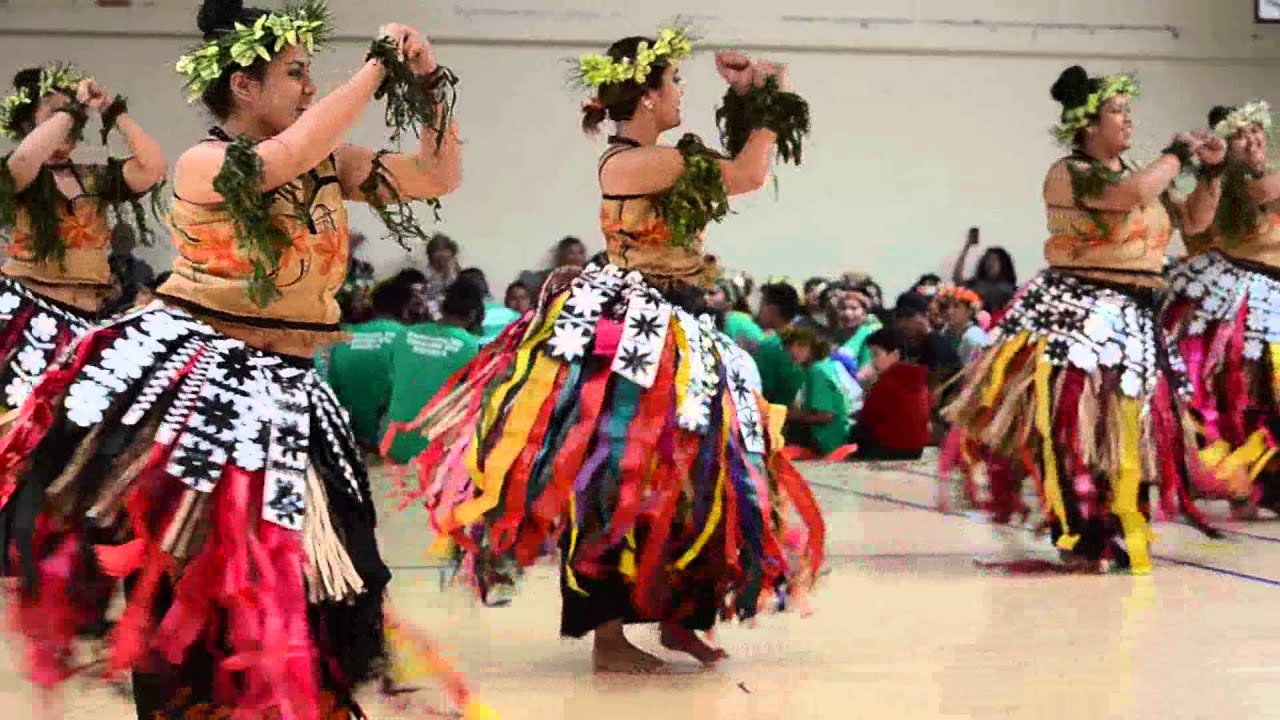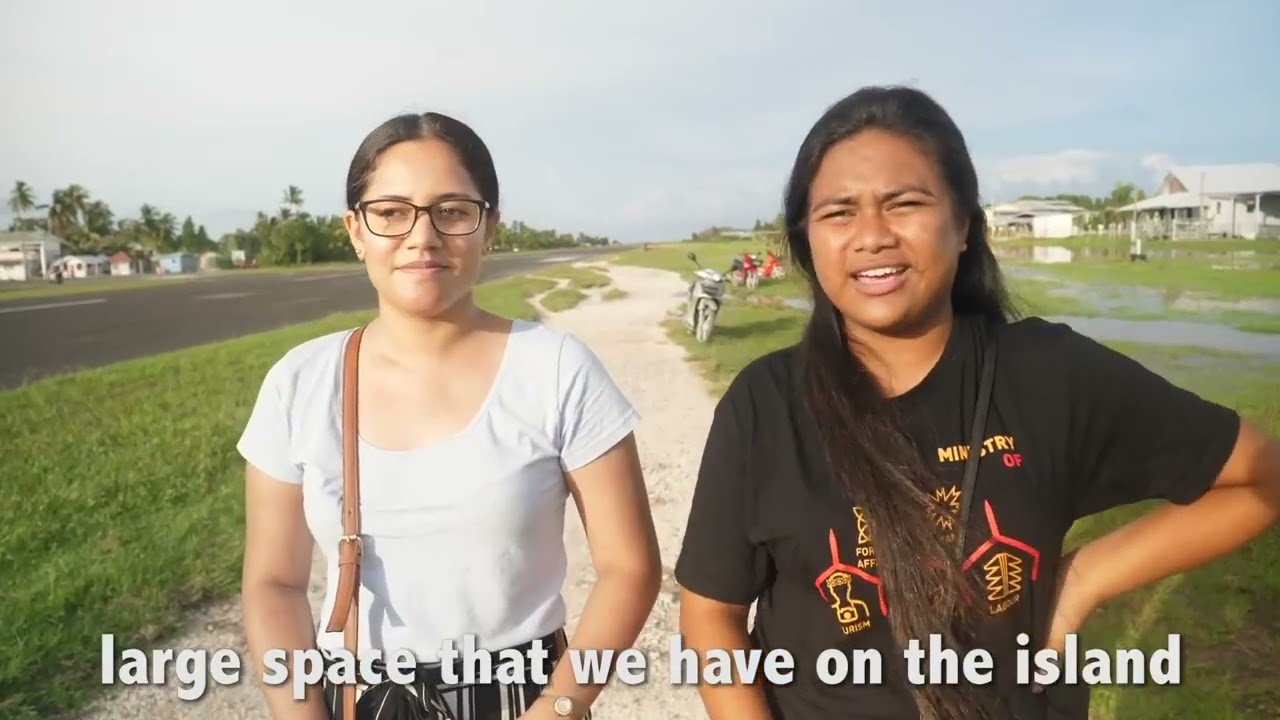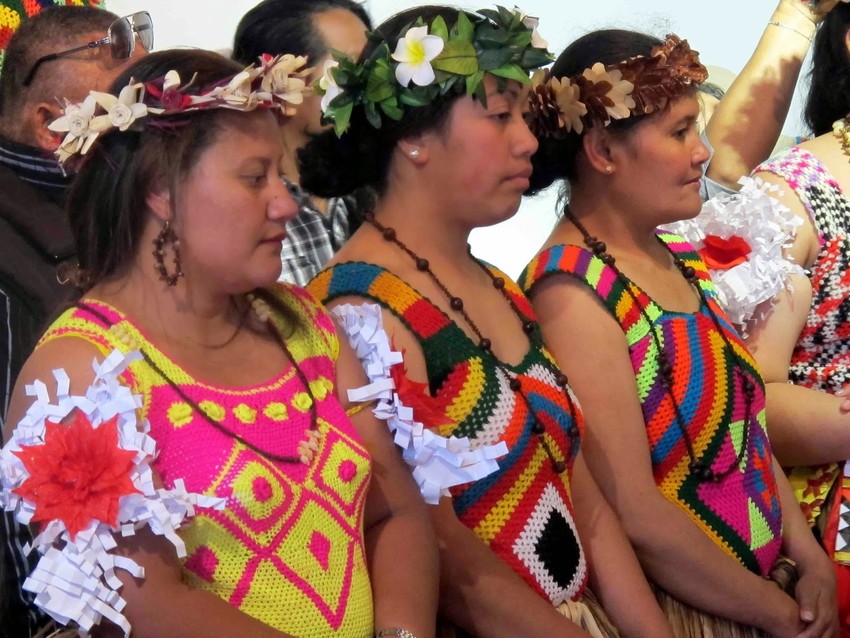Tuvalu Women - A Contribution To Development
Tuvalu women often work in traditional agriculture as well as home and communal duties. The women of Tuvalu help develop the island nation's art, which includes making handicrafts out of cowrie and other shells. Women from Tuvalu compete in sports, including football, in the Tuvalu A-Division for Women, and in international events like the Pacific Games, where they represent their country. At the 2015 Pacific Games, Asenate Manoa competed for Tuvalu and took home a bronze medal in powerlifting.
Jane RestureOct 05, 202248 Shares963 Views

Tuvalu womenoften work in traditional agriculture as well as home and communal duties. The women of Tuvaluhelp develop the island nation's art, which includes making handicrafts out of cowrie and other shells.
Women from Tuvalu compete in sports, including football, in the Tuvalu A-Division for Women, and in international events like the Pacific Games, where they represent their country. At the 2015 Pacific Games, Asenate Manoa competed for Tuvalu and took home a bronze medal in powerlifting.
She has previously competed in the 100-meter sprint for Tuvalu in the 2008 Summer Olympics, 2009 World Championships, and 2011, and 2012 Summer Olympics. She also took part in the 2017 Pacific Mini Games women's long jump competition.
In contrast to males, who raised their borrowing from the Development Bank of Tuvalu from 31% to 41% between 2004 and 2005, women's borrowing rose from 16% to 30%. However, compared to males, who have a total loan approval rate of 63%, women still have a lower overall approval rate (37%), and men get 74% of all credit issued.
How The Tuvalu Coastal Adaptation Project Is Empowering Women And Girls?
The Tuvalu Coastal Adaptation Project (TCAP) has a strong focus on including everyone. It was designed with gender equality in mind from the start, and it has an ongoing Gender Strategy and Action Plan.
Its goal is to improve coastal protection on the islands of Funafuti, Nanumaga, and Nanumea to make them more resilient to climate change. TCAP is based on the idea of responsible participation, and the development of local knowledge and skills are two of its most important parts.
Since the project's beginning, TCAP has had conversations with government organizations about how to increase the involvement of women.
Even though the conversations were helpful, they also showed important gaps, such as the need for better knowledge about gender work, training on gender mainstreaming, and more attention to gender in the work done.
Women And The Law
While the law guarantees Tuvalu women and men equal chances, in practice, women face cultural obstacles when running for office. Tuvalu does not recognize marital rape as a crime, and sexual offenses are subject to maximum punishments under the law, no minimum sentences are specified.
Girls, who are 16 years old or older might be charged with a crime, and held liable for having incestuous relationships.
Violence Against Women
In Tuvalu, 37% of women said they had ever been physically abused, with 25% saying it had happened within the preceding year and 8% saying it had happened while they were pregnant.
Most of the Tuvalu women who said they had been physically abused said that their current spouse or another close relative had done it (90%). Only 8% said that a sibling had done it.
13% of women report that their first sexual encounter was forced upon them, and 21% of women have suffered sexual violence. Almost half of the Tuvaluan women (47%) have been physically or sexually abused, and 12% of these women have been abused in both ways.
Legislation
In honor of International Women's Day in March 2013, a week of activities focused on the issue of violence against Tuvalu women. Due to traditional cultural standards, women are prevented or discouraged from reporting attacks.
It is suggested that the law be changed so that the Tuvalu police have more power and the courts can give harsher punishments for violence against women.

TUVALU (The least visited country in the world)
Women’s Economic Empowerment
With at least 80% of the nation's per capita revenue coming from agriculture and fishing, Tuvalu is mostly a subsistence economy. The government remains the largest employer in the official sector, employing nearly 25% of the labor force. The informal economy and subsistence agriculture employ at least 75% of the labor force.
The projected female labor force participation is 47.9%, the estimated female employment rate is 22.7%, and the estimated female unemployment rate is 8.6%. Female labor participation is expected to be 51.8%, with female unemployment at 12%.
Women’s Health
In Tuvalu, 31% of women use contraception, while 24% of fertile and sexually active females report an unmet need for contraception. On average, 37% of married women choose their healthcare. Heart disease is the most common cause of death in Tuvalu that isn't caused by a disease that spreads from person to person.
People Also Ask
What Is The Daily Work Of Tuvalu Women?
In Tuvalu, women often do traditional farm work as well as chores around the house and in the community.
How Is The Tuvalu Coastal Adaptation Project Empowering Women And Girls?
Everyone is heavily included in the Tuvalu Coastal Adaptation Project (TCAP). It was made with equal rights for men and women in mind from the start and has a Gender Strategy and Action Plan that is still in place.
What Are The Laws For Women In Tuvalu?
Under the law, men and women have the same chances, but when women run for office, they face cultural barriers.
Conclusion
In Tuvalu, while the majority of the population is Christian, women nonetheless uphold traditional Polynesian culture. An individual's connection to their native island helps to preserve Tuvaluan cultural identity. Each household in Tuvalu's traditional community structure has a specific responsibility to do for the community, called a salanga.
The parents teach their children the family's talents. Tuvalu women take part in the traditional music and art of their country, which includes making handicrafts out of cowrie and other shells.
Latest Articles
Popular Articles
